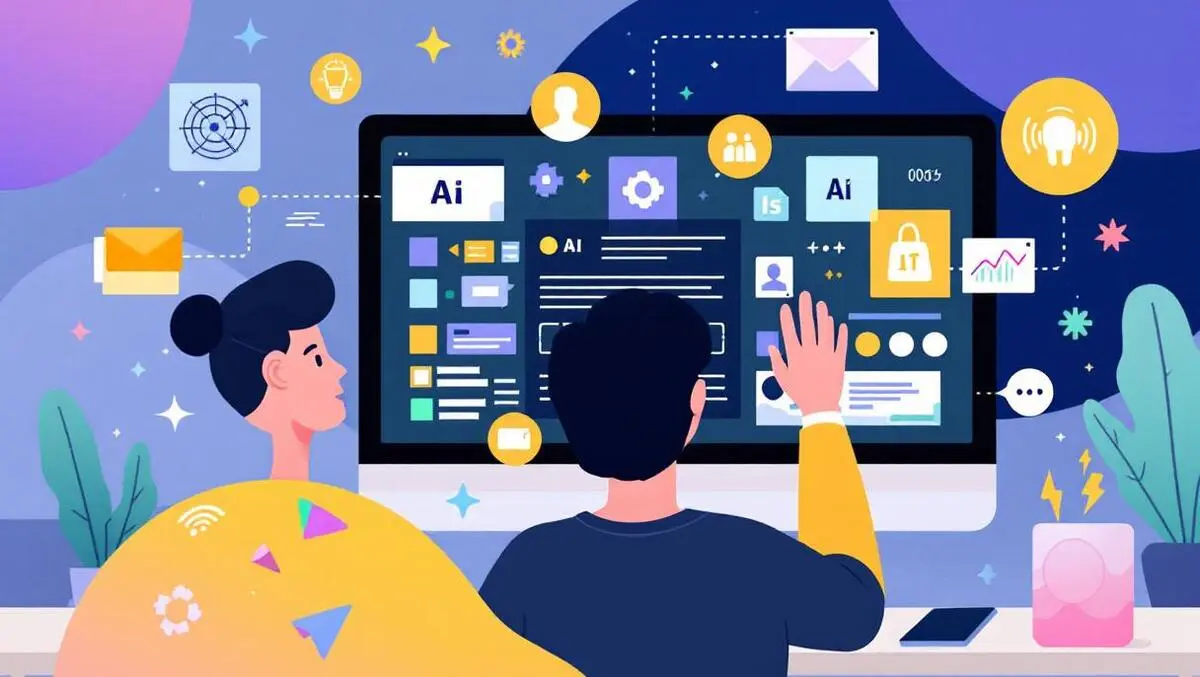
Canva unveils deep ChatGPT integration for seamless AI design
Canva has announced a significant extension to its AI capabilities by becoming the first design platform to be natively integrated with OpenAI's ChatGPT, allowing seamless design workflows within AI-native environments.
Deep research connector
The new offering includes the Canva deep research connector for ChatGPT, enabling users to link their design history and creative projects directly to OpenAI's latest model. This allows for context-aware and tailored responses based on the user's previous work, facilitating more efficient and insightful collaborations with AI tools.
Additionally, Canva has launched the Canva Model Context Protocol (MCP) Server. The MCP Server is designed as an open platform that allows AI assistants such as ChatGPT or Claude to directly access a user's full Canva workspace. This access includes everything from historical designs to creative tools and templates, enabling these AI agents to generate, iterate, draft copy, or resize assets without users needing to leave their conversational interface.
Both tools aim to streamline workflows for Canva's user base, which now exceeds 240 million individuals, including teams across 95% of Fortune 500 companies. These new capabilities allow users to brainstorm, create, and publish content in one space, which Canva says removes the need for switching between applications.
Focus on user productivity
"AI agents and assistants have become indispensable creative partners, yet current workflows require users to manually add context or references, creating complexity," said Anwar Haneef, GM and Head of Ecosystem at Canva. "We're embedding Canva directly into the AI tools people use every day so they can brainstorm, create, and publish content faster. This is a major step in our vision to make the complex simple and build an all-in-one AI workflow that's secure and accessible to all."
The Canva deep research connector is currently available to all users, allowing instant access to design histories within ChatGPT. This means users can now prompt ChatGPT to review, analyse, or edit content spanning Canva Docs, Presentations, and other design outputs without searching for files or toggling between browser tabs. According to Canva, this integration also supports secure collaboration and content creation by employing Canva Shield, its comprehensive AI trust and safety framework.
Implications for business users
The integration is expected to be particularly beneficial for specific professional domains. Marketers may use it to summarise campaigns, extract messaging from brand guides, or reference project plans. Business owners are able to automatically analyse business reports and summarise previous meeting notes. Sales professionals can analyse customer feedback or prepare proposals, while educators can organise lesson planning and curriculum references more efficiently.
"Launching the Canva deep research connector means businesses and their employees get faster, better insights because ChatGPT has more context. We're thrilled to work together to bring powerful AI to many of today's most important workflows," said Nate Gonzalez, Head of Business Products at OpenAI.
MCP Server and future integrations
The Canva MCP Server offers further integration, bringing Canva's creative suite into a growing ecosystem of AI agents and applications. With integrations for Salesforce, Claude, and more expected soon, the platform is poised to expand its reach across enterprise software.
The MCP Server supports several key tasks, including the ability for AI to generate different design assets directly from chat context, autofill data visualisations with structured information extracted from discussions, and resize or export brand-specific templates. It also supports importing PDFs or files directly using a link, which removes the need for manual uploads.
These new standards allow AI assistants to access real-time context during design work, helping ensure brand consistency and relevance throughout the created content. Canva reports that such approaches have already led to an 18 billion count of AI tool uses as more users, especially in education and marketing, rely on AI for creativity support.
Building on previous AI tools
This integration follows the rollout of Canva's own conversational assistant, Canva AI, as well as prior AI-powered initiatives within the platform, such as Canva Code and content creation tools for Canva Sheets. Canva's multi-model AI product strategy aims to offer both proprietary models and partner model integrations, enabling rapid adoption of emerging frameworks like MCP.
Duncan Clark, Canva's Head of Europe, recently discussed the company's approach to AI in design and highlighted their ongoing commitment: "Canva is leading the way in rethinking how work gets done, and crucially, where humans add value; doubling down on the idea that AI isn't about replacing people but empowering them to work more creatively and effectively."


